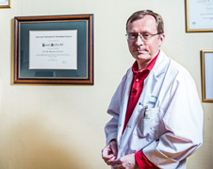Department of Neurosurgery and INSERM U1051,
Gui de Chauliac Hospital, Montpellier University Medical Center, France
Funded by

Functional anatomy, neuroplasticity and cerebral connectomics: New insights issued from stimulation mapping
While prominent in the traditional literature, the localizationist and static view of brain processing does not explain numerous observations of functional recovery following cerebral damages. The goal is to revisit this classical modular and inflexible model by proposing a dynamic organization of brain circuits, which allows postlesional cerebral adaptative phenomena, able to maintain neurological and cognitive functions, even in adults. In this state of mind, recent data provided by serial mappings performed in patients who underwent awake surgery for diffuse glioma infiltrating eloquent structures will be reviewed. Firstly, the use of intraoperative electrical mapping enables the realization of on-line anatomo-functional correlations both at cortical and subcortical levels, supporting a network distribution of the brain, and resulting in the reappraisal of cognitive models – notably regarding language, executive functions and emotional processing. Secondly, combination of neuropsychological assessments and functional neuroimaging before and after operation demonstrates that it is possible to achieve massive resections of “critical” regions without eliciting permanent sequelae, thanks to reorganization of cerebral circuits. Thirdly, repeated surgeries in cases of tumor relapse show functional remapping in the same patients over time. Taken together, these findings open the window toward a huge plastic potential of human central nervous system in adults. However, a better understanding of cerebral connectomics leads to the conclusion that the white matter connectivity constitutes a main limitation of such neuroplasticity, explaining the lack of recovery in patients with extensive subcortical damages. This “hodotopical” account of brain dynamics is very important for cerebral surgery, especially in the field of cerebral tumors, because it allows an improvement of both overall survival as well as quality of life, that is, an optimization of the “onco-functional” balance. These favorable surgical outcomes have recently resulted in the proposal of a “preventive functional neurooncology” based on individual mapping-guided resection and on multi-stage surgical approach.

